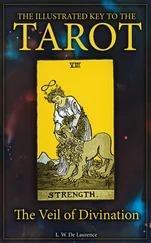There's the rub,—it pays. Rubber, ivory, and palm-oil; tea, coffee, and cocoa; bananas, oranges, and other fruit; cotton, gold, and copper—they, and a hundred other things which dark and sweating bodies hand up to the white world from pits of slime, pay and pay well, but of all that the world gets the black world gets only the pittance that the white world throws it disdainfully.
Small wonder, then, that in the practical world of things-that-be there is jealousy and strife for the possession of the labor of dark millions, for the right to bleed and exploit the colonies of the world where this golden stream may be had, not always for the asking, but surely for the whipping and shooting. It was this competition for the labor of yellow, brown, and black folks that was the cause of the World War. Other causes have been glibly given and other contributing causes there doubtless were, but they were subsidiary and subordinate to this vast quest of the dark world's wealth and toil.
Colonies, we call them, these places where "niggers" are cheap and the earth is rich; they are those outlands where like a swarm of hungry locusts white masters may settle to be served as kings, wield the lash of slave-drivers, rape girls and wives, grow as rich as Croesus and send homeward a golden stream. They belt the earth, these places, but they cluster in the tropics, with its darkened peoples: in Hong Kong and Anam, in Borneo and Rhodesia, in Sierra Leone and Nigeria, in Panama and Havana—these are the El Dorados toward which the world powers stretch itching palms.
Germany, at last one and united and secure on land, looked across the seas and seeing England with sources of wealth insuring a luxury and power which Germany could not hope to rival by the slower processes of exploiting her own peasants and workingmen, especially with these workers half in revolt, immediately built her navy and entered into a desperate competition for possession of colonies of darker peoples. To South America, to China, to Africa, to Asia Minor, she turned like a hound quivering on the leash, impatient, suspicious, irritable, with blood-shot eyes and dripping fangs, ready for the awful word. England and France crouched watchfully over their bones, growling and wary, but gnawing industriously, while the blood of the dark world whetted their greedy appetites. In the background, shut out from the highway to the seven seas, sat Russia and Austria, snarling and snapping at each other and at the last Mediterranean gate to the El Dorado, where the Sick Man enjoyed bad health, and where millions of serfs in the Balkans, Russia, and Asia offered a feast to greed well-nigh as great as Africa.
The fateful day came. It had to come. The cause of war is preparation for war; and of all that Europe has done in a century there is nothing that has equaled in energy, thought, and time her preparation for wholesale murder. The only adequate cause of this preparation was conquest and conquest, not in Europe, but primarily among the darker peoples of Asia and Africa; conquest, not for assimilation and uplift, but for commerce and degradation. For this, and this mainly, did Europe gird herself at frightful cost for war.
The red day dawned when the tinder was lighted in the Balkans and Austro-Hungary seized a bit which brought her a step nearer to the world's highway; she seized one bit and poised herself for another. Then came that curious chorus of challenges, those leaping suspicions, raking all causes for distrust and rivalry and hatred, but saying little of the real and greatest cause.
Each nation felt its deep interests involved. But how? Not, surely, in the death of Ferdinand the Warlike; not, surely, in the old, half-forgotten revanche for Alsace-Lorraine; not even in the neutrality of Belgium. No! But in the possession of land overseas, in the right to colonies, the chance to levy endless tribute on the darker world,—on coolies in China, on starving peasants in India, on black savages in Africa, on dying South Sea Islanders, on Indians of the Amazon—all this and nothing more.
Even the broken reed on which we had rested high hopes of eternal peace,—the guild of the laborers—the front of that very important movement for human justice on which we had builded most, even this flew like a straw before the breath of king and kaiser. Indeed, the flying had been foreshadowed when in Germany and America "international" Socialists had all but read yellow and black men out of the kingdom of industrial justice. Subtly had they been bribed, but effectively: Were they not lordly whites and should they not share in the spoils of rape? High wages in the United States and England might be the skilfully manipulated result of slavery in Africa and of peonage in Asia.
With the dog-in-the-manger theory of trade, with the determination to reap inordinate profits and to exploit the weakest to the utmost there came a new imperialism,—the rage for one's own nation to own the earth or, at least, a large enough portion of it to insure as big profits as the next nation. Where sections could not be owned by one dominant nation there came a policy of "open door," but the "door" was open to "white people only." As to the darkest and weakest of peoples there was but one unanimity in Europe,—that which Hen Demberg of the German Colonial Office called the agreement with England to maintain white "prestige" in Africa,—the doctrine of the divine right of white people to steal.
Thus the world market most wildly and desperately sought today is the market where labor is cheapest and most helpless and profit is most abundant. This labor is kept cheap and helpless because the white world despises "darkies." If one has the temerity to suggest that these workingmen may walk the way of white workingmen and climb by votes and self-assertion and education to the rank of men, he is howled out of court. They cannot do it and if they could, they shall not, for they are the enemies of the white race and the whites shall rule forever and forever and everywhere. Thus the hatred and despising of human beings from whom Europe wishes to extort her luxuries has led to such jealousy and bickering between European nations that they have fallen afoul of each other and have fought like crazed beasts. Such is the fruit of human hatred.
But what of the darker world that watches? Most men belong to this world. With Negro and Negroid, East Indian, Chinese, and Japanese they form two-thirds of the population of the world. A belief in humanity is a belief in colored men. If the uplift of mankind must be done by men, then the destinies of this world will rest ultimately in the hands of darker nations.
What, then, is this dark world thinking? It is thinking that as wild and awful as this shameful war was, it is nothing to compare with that fight for freedom which black and brown and yellow men must and will make unless their oppression and humiliation and insult at the hands of the White World cease. The Dark World is going to submit to its present treatment just as long as it must and not one moment longer.
Let me say this again and emphasize it and leave no room for mistaken meaning: The World War was primarily the jealous and avaricious struggle for the largest share in exploiting darker races. As such it is and must be but the prelude to the armed and indignant protest of these despised and raped peoples. Today Japan is hammering on the door of justice, China is raising her half-manacled hands to knock next, India is writhing for the freedom to knock, Egypt is sullenly muttering, the Negroes of South and West Africa, of the West Indies, and of the United States are just awakening to their shameful slavery. Is, then, this war the end of wars? Can it be the end, so long as sits enthroned, even in the souls of those who cry peace, the despising and robbing of darker peoples? If Europe hugs this delusion, then this is not the end of world war,—it is but the beginning!
Читать дальше












